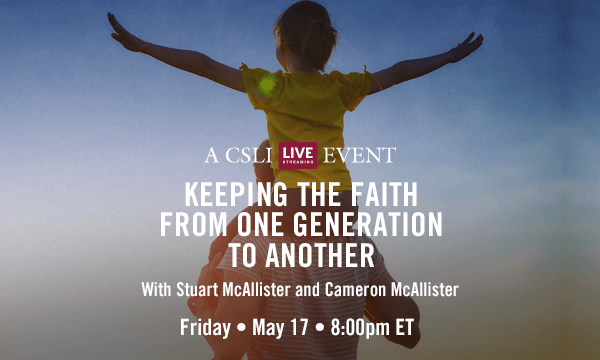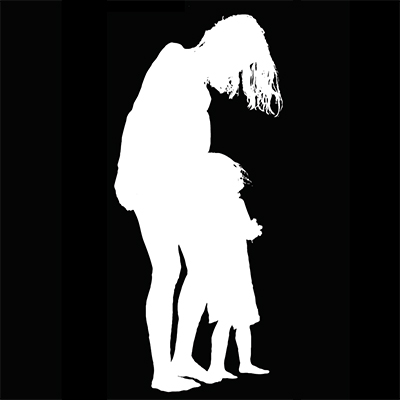Back to series



Is Christianity Oppressive or Liberating for Women?
VOLUME 3 NUMBER 2 ISSUE OF BROADCAST TALKS (PDF)
BROADCAST TALKS presents ideas to cultivate Christ-like thinking and living. Each issue features a transcription of a talk presented at an event of The C. S. Lewis Institute. The following is adapted from a talk given by Amy Orr-Ewing at the C.S. Lewis Institute’s first Greater Washington Women’s Apologetics Conference entitled “Conversations that Count,” October 21, 2017, at Immanuel Bible Church in Springfield, Virginia.
Is Christianity oppressive to women? I think this question is very important and really relevant in our cultural context today. And it’s part of a suite of questions and objections that people have whereby Christianity is seen in general terms as being sort of oppressive to groups of people. If you’re ministering as we do as a team on the African continent, there’s a sense now increasing in universities that Christianity is the white man’s religion, it was brought as part of a kind of cultural, imperialistic, oppressive force for ill to the continent, and therefore it needs to be resisted. Christianity is seen by many as being intolerant, and at least a part of that is this idea of patriarchy; it’s seen as a tool of oppressors, and at least one way in which it has been oppressive is toward women.
 Now I think it’s good for us as Christians to be exposed to what people really think of us. Sometimes we can be in the bubble, and we can forget that people really do have objections.
Now I think it’s good for us as Christians to be exposed to what people really think of us. Sometimes we can be in the bubble, and we can forget that people really do have objections.
Let’s consider, then, on what basis should we judge this question, is Christianity oppressive to women? Undoubtedly, from personal experience some are going to say, “Well, the church has oppressed me,” or, “I can cite this specific example,” and others are going to say, “Well no, no, I don’t believe that. In my personal experience the church has been very good and liberating for women.” How are we going to judge this question? In the wide cultural context today of objectification and sexual violence, this question is more crucial than ever, not just for ourselves but for our sons and our daughters. Does the Christian worldview have anything to say in a culture that objectifies women? Is there a coherent intellectual basis for the dignity of humanity, male and female? I want to suggest that to settle this question we need to go to the primary source material. The experiences we’ve had, whether they’re negative or positive, are they warranted by the Christ of the Bible and the text that He upheld — the source material about Him? After all, my personal preferences on one level need to be secondary to the question, where is the evidence going to lead us? So what does the Bible say?
The Old Testament
Let’s think for a moment about the Old Testament. In the Old Testament, there are numerous images of women. Eve is described in that first initial text as Adam’s helper. The Hebrew word there is ezer. I don’t know the visual image that comes into your mind when you think of Eve being Adam’s helper. I imagine an apron and a washing-up bowl with a lot of bubbles in it, and the woman is there doing the washing up; the bubbles are at least up to her elbow, and then there’s a chain on her ankle chaining her to the kitchen sink. That’s the visual image. It’s not actually a helpful visual image, because that title ezer, that word helper is elsewhere in the Old Testament only ever used of guess who? — God. God is humanity’s helper.
In Genesis 3:15, Eve is the recipient of that first redemptive promise of the Bible, that theological promise, the hope of Scripture that Messiah will come and crush the serpent’s head. The primary teaching text of the Old Testament describing a female role model doesn’t conform to our visual image of religious women. Proverbs 31:1–31: This woman lacks nothing in value. She assesses, buys, and sells property. She’s entrepreneurial. She employs multiple people. She works hard. She provides for employees as well as for her family financially. She plants a vineyard. That means she’s a strategic thinker as well as an implementer. It took time for vineyards to come in; you had to plan ahead to do it. She could implement strategy. She studies as a scholar, and she teaches other people. She embraces the intellectual life. She cares for the poor. She gives things to the poor and needy around her. She commands respect from influential people. She is loved by her family. She’s creative. She designs nice things. She even has nice bed linen. She has strong arms. She can laugh at the future. She is not afraid. She has authority in her home. When she speaks, people listen. She has the ability and the inclination to encourage other people. That is the Bible’s role model for women. Praise God.
Probably lots of us are going to think, “Oh my word, I can never live up to that.” But what we’re not to think of it is, “Oh go on, drudge. Get back in the kitchen.”
What the Bible esteems and admires and holds up as a woman to be praised is all of those things. Be encouraged if you’re in the workplace. Don’t buy into the meme in the church today that in order to be fulfilled you have to be married. I am sure there are single women here today. God loves you, and He has tremendous purpose for you today, now. Maybe you will get married soon or one day, but don’t live your life in a waiting room for that to happen.
 In the Old Testament women were called to be prophetesses, God’s mouth in the world. Miriam is an example of this in Exodus 15:20, but there are others, like Deborah who in Judges 4:4–7 has a lot to say. There’s a woman called Huldah who’s really important; we’ll come to her in a minute. Joel predicts that in the last days the Lord will fulfill the prophecy that all of God’s people, men and women alike, would prophesy. That’s the hope of the Bible, that as women we would prophesy, and we see it in the Old Testament. In the worship life of God’s people, women played an important role. Huldah played that role during the rule of Josiah. Those who were repairing the temple found the book of the Law; you remember that story? It had been neglected, and Josiah directed five leaders to seek guidance from God about this book. They didn’t know what it was. “We need help to decide what this book is.” These five leaders didn’t know, and they thought, “Who could we go to that could help verify the Bible – God’s Word?” That’s what it was. And rather than going to Jeremiah, the most famous prophet of that time, guess who they went to? They went to Huldah.
In the Old Testament women were called to be prophetesses, God’s mouth in the world. Miriam is an example of this in Exodus 15:20, but there are others, like Deborah who in Judges 4:4–7 has a lot to say. There’s a woman called Huldah who’s really important; we’ll come to her in a minute. Joel predicts that in the last days the Lord will fulfill the prophecy that all of God’s people, men and women alike, would prophesy. That’s the hope of the Bible, that as women we would prophesy, and we see it in the Old Testament. In the worship life of God’s people, women played an important role. Huldah played that role during the rule of Josiah. Those who were repairing the temple found the book of the Law; you remember that story? It had been neglected, and Josiah directed five leaders to seek guidance from God about this book. They didn’t know what it was. “We need help to decide what this book is.” These five leaders didn’t know, and they thought, “Who could we go to that could help verify the Bible – God’s Word?” That’s what it was. And rather than going to Jeremiah, the most famous prophet of that time, guess who they went to? They went to Huldah.
One scholar comments that officials from the royal court going to a prophetess relatively unknown with so important a matter is a strong indication that in this period of Israel’s history there was little if any prejudice against a woman’s offering of prophecy.
Don’t buy into the lie that the Bible is down on women. Women were equal with men in prayer, covenant women prayed directly to God. They didn’t require a husband or a priest to pray on their behalf. They could pray to God directly.
Now of course it’s true to say that the Old Testament contains stories in which terrible things happen to women, things like rape, things like violence, things like a father saying a stupid thing and killing his child. But these things are not condoned. You’ve got to remember when you read the Old Testament that much of it is narrative in style, and sometimes the author doesn’t condemn or condone a particular incident. This is a historical account of what happened. The reader is encouraged to reflect and to respond. As we read the laws of the Old Testament, we read an ancient text given at and for a particular time, and Christians read the text through the lens of Jesus who claimed to fulfill the Law and the Prophets as well as upholding the moral law of the Old Testament.
We don’t just encounter male heroes; we also meet female heroines in the Old Testament. Remember the ancient Near Eastern context into which these texts are set, and read of Deborah who led her people, read of Queen Esther whom God raised up to save her people.
Perhaps even more fascinatingly, in the Old Testament feminine imagery is used to describe God Himself. In Isaiah 42 God draws an analogy between Himself and a warrior and then between Himself and a woman giving birth. This is an interesting and graphic portrait of God using earthly language from the realm of female experience. Another example might be Isaiah 66, God saying, “As a mother comforts her child, so will I comfort you.” That is not misogynistic.
The New Testament
In the New Testament, there are numerous significant events involving women. Particularly when we consider the conservative cultural attitudes of the time, this is amazing. That context is opened up to our view by a tiny little statement in the middle of John’s Gospel, chapter 4. The context is the famous encounter of Jesus and the woman at the well. There’s a telling little phrase in verse 27 that sheds light on just how radical the Bible and Christ Himself is in His treatment of women. The disciples come to Jesus during His conversation with a Samaritan woman. We’re told in the narrative that the disciples were astonished to find Him talking with a woman, talking, just talking.
Jesus time and time again turns these cultural norms on their heads. He does it, first, by having female disciples. In a culture where the idea of women traveling around with men or having the status of a disciple was totally questionable, Jesus has women included in His traveling circle. Luke’s Gospel tells us:
The Twelve were with him, and also some women who had been cured of evil spirits and diseases: Mary (called Magdalene) from whom seven demons had come out; Joanna the wife of Chuza, the manager of Herod’s household; Susanna; and many others. These women were helping to support them out of their own means. [8:1–3 NIV]
So the tradition offers praise to these women who traveled with Jesus and paid for the entire enterprise. What a sharp contrast with a contemporary Jewish author, Ben Sirach of Jerusalem, writing reflecting the more prevalent attitude of the time when he said, “Bad temper, insolence, and shame hold sway where the wife supports the husband.” Jesus doesn’t think like that at all. He travels with women in His group of disciples, and He allows them to give financially to the needs of the group. We see Jesus specifically teaching women. Often people don’t understand how extraordinarily important this is and how the way it’s phrased in the New Testament is really important.
In Luke 10:38[ff], we read of Mary, who sits at the feet of Jesus while Martha was distracted with serving. She asked Jesus to tell Mary to help her, but Mary continued to engage in theological study much to her sister’s annoyance.
Now, in first-century Judaism, rabbis gathered groups of students or disciples who would sit at the feet of the rabbi to learn. The phrase “to sit at the feet of” describes the rabbi-student relationship studying the Torah. And this privilege of studying Torah under the tutelage of a rabbi was strictly for men only and it has remained so within Judaism until quite recently. Men studied the Torah; women did the housework. That was the way things were. So Mary, by sitting at Jesus’s feet to listen to His word, is assuming the role of a rabbinical student, a role reserved in Judaism exclusively for men.
 And it’s really interesting, later in John’s Gospel, chapter 11, where we read of Martha, Mary’s sister, running out to Jesus after their brother had died. And in that context she becomes the recipient of one of the most astounding theological statements of the New Testament. Jesus says to Martha, “I am the resurrection and the life. He who believes in me will live, even though he dies.” Jesus didn’t just teach Mary theology; he also taught Martha. Another example of Jesus revealing great theological truths to women is that Christ reveals His true identity in the gospel of John to a Samaritan woman at the well. “I who speak to you am He.”
And it’s really interesting, later in John’s Gospel, chapter 11, where we read of Martha, Mary’s sister, running out to Jesus after their brother had died. And in that context she becomes the recipient of one of the most astounding theological statements of the New Testament. Jesus says to Martha, “I am the resurrection and the life. He who believes in me will live, even though he dies.” Jesus didn’t just teach Mary theology; he also taught Martha. Another example of Jesus revealing great theological truths to women is that Christ reveals His true identity in the gospel of John to a Samaritan woman at the well. “I who speak to you am He.”
Jesus doesn’t just act in a countercultural manner toward women, He also teaches and speaks about women in a new and fresh way. Anyone who’s experienced sexism or racism will know that racists and sexists aren’t very often directly rude. Sometimes they are, obviously. But often those attitudes are revealed in the incidental way they speak about women or people from another background. It’s when they’re not paying attention that those prejudices come out. And what’s fascinating is that both in Jesus’s direct engagement with women and also by the incidental way He speaks about women, we see this beautiful attitude. You see that Jesus’s parables are drawn from life experience, both of men and women. So, for example, the parable of the mending of the garment, that’s an everyday image from the average female-vocation working life at the time. The parable about the making of the wine is an everyday image from an average male vocation from the time. In Luke’s Gospel, chapter 15, He speaks of God as the shepherd searching for the sheep that has been lost. Next parable, He speaks of God as the woman, down on her knees in the dirt of her house, searching for the coin that has been lost. That is actually amazing.
Following on from all of this, we see that women played a really important and prominent role as historic witnesses to the central events surrounding Jesus Christ. Think about it like this: Mary is the only witness to the annunciation of the virgin birth, and she’s the primary witness to that reality. Joseph becomes a secondary witness, but Mary is the primary witness to the Christian doctrine of the incarnation. She’s trusted with that. It’s a group of women that stood at the foot of the cross. While John is also mentioned in one of the gospel narratives, women are primary witnesses to the crucifixion of God and therefore to the doctrine of the atonement. And guess what, women are first at the empty tomb. They’re the first to arrive to witness the resurrection. Incarnation, crucifixion, resurrection.
It’s striking for us to remember that the word of women was perceived as having less value than the word of men, so it’s actually enormously important that the most significant events of Jesus’s life, identity, death, and resurrection were witnessed firsthand primarily by women. This is seen as strong evidence for the veracity of the gospel accounts. It’s inconceivable that if you were making up a story, fabricating a historical event, that you would position female witnesses so prominently. This is enormously important. If we’re not prepared to listen to the teaching of women, we can’t have the incarnation, crucifixion, or resurrection. So good luck with Christian theology. After all, what is Christianity without Christ? My colleague Michael Ramsden likes to say, “If you take Christ out of Christian, you’re left with the letters ‘i a n’ and ian can’t help us very much.”
Jesus demonstrated how women should and could be regarded, and this is an extraordinary and unique apologetic in any other worldview. I know of no other coherent, intellectual foundation for the value of women that comes close to this. And in our world, where women are often abused, experiencing sexual violence and objectification and all of that, this is incredibly good news.
Dorothy L. Sayers wrote in an essay [Are Women Human?], “Perhaps it is no wonder that the women were first at the Cradle and last at the Cross. They had never known a man like this Man — there had never been such another.” And so the question comes, and if I were speaking in an evangelistic context, this is what I would be asking. The question comes: What will we do with their testimony and the witness of those women who have passed on to us this story of the incarnation of God, His atoning death, and His resurrection? And in our context of women objectified as objects, susceptible to self-objectification, increasingly pursued as the targets of sexual aggression, sociologists tell us that it is the humanity of women that is at stake. And it is into precisely this question that Jesus Christ speaks, upholding that Genesis ideal of male and female created in the image of God, human life as sacred, precious, having transcendent value. Christ enacted the truth in His treatment of women. Jesus was radically countercultural in His treatment of women. And, if we have time to look at it, we see that the early church upheld this.
I just was reading in my Bible readings yesterday Romans 16, and I tweeted out that in just one chapter of the Bible, Romans 16, ten women are greeted and applauded for their love, their hard work, their commitment, their risk taking, their leadership, and their sacrifice. Romans 16 names Phoebe as a minister, protector, or president in the church, a leader; names Priscilla a fellow laborer who’s risked her life in the service of Christ; names Junia outstanding among the apostles; Mary hardworking for the saints; Tryphena hardworking for the Lord; Tryphosa hardworking for the Lord; Persis as a beloved friend of Paul who worked hard alongside him for the Lord; Julia as a saint; Rufus’s mother as “a mother to me,” a mother to Paul; and Nereus’s sister as a saint.
 Patriarchy is not a logical outworking of Jesus’s teaching, and so faithful Christians in every generation have resisted it. And it really matters. Truth matters. Ideas have consequences. If male and female are equal image bearers of the divine image, underpinning the sacredness of human life, the outworkings of this will be practical. In the same way that if we are just slime and we’re just here by chance, the strong eliminating the weak, there’s no reason to be overly concerned about domination, subjugation, or sexism. We just need to make sure that we personally are not on the receiving end of it.
Patriarchy is not a logical outworking of Jesus’s teaching, and so faithful Christians in every generation have resisted it. And it really matters. Truth matters. Ideas have consequences. If male and female are equal image bearers of the divine image, underpinning the sacredness of human life, the outworkings of this will be practical. In the same way that if we are just slime and we’re just here by chance, the strong eliminating the weak, there’s no reason to be overly concerned about domination, subjugation, or sexism. We just need to make sure that we personally are not on the receiving end of it.
The specifics of life are directly impacted by the intellectual patterns we apply. Rather than male and female equally reflecting the image of God in their shared humanity, women and men actually are both demeaned by a reductionist view of women, a separate class, economically dependent on men or restricted in their spheres of activity or creativity, just based purely on arbitrary cultural prejudice. The Christian claim is that there is a divine pattern for humanity, male and female, equally human, reflecting together the image of God. And that is upheld in the ministry of Jesus. God incarnate in human history upheld that ideal intentionally, and He invited women to be first at the cradle and last at the cross. It is He who underpins an expansive view of human flourishing in which the value of all life is underpinned by our transcendent source. Where the church may have failed women, Christ as the Truth incarnate gave humanity the perfect pattern as to how to affirm that full humanity of women.
We shouldn’t be surprised to be disappointed by Christians. After all, as my friend Elaine Storkey has said, the church recruits from the human race. Thus we’re never surprised by negative behaviors by institutions or individuals. But I suggest to you this morning that we will never be disappointed by Christ. The promise of Christ is that coming to know Him is the key. Real change is possible when it’s wrought by Him. People who claim to represent Him may do all sorts of things, but do their actions ring true to Him?
Is Christianity oppressive to women? My answer is, not if you look at Jesus. Women are welcomed, taught, spoken of as equally human, witnesses to the primary facts of the Christian story: incarnation, atonement, resurrection. Women play all kinds of roles in church, and in the early church women went to their deaths in the amphitheater, martyred just as the Christian men were. I don’t have time to read it, but look up the story of two early Christian martyrs who were women, Perpetua and Felicity — Perpetua a noblewoman and Felicity her servant girl.
Women and men equally bear the image of God as fully human with all the privileges and challenges of living as human beings. Christianity is good news for men just as it’s good news for women. But importantly it provides us with a coherent worldview and underpinning for a vision of human flourishing. Amen.


Amy Orr-Ewing
Speaker Amy Orr-Ewing is an international author, speaker, and theologian. She presently serves as the Director of Programs for the Oxford Centre for Christian Apologetics (OCCA). She has written two books exploring key questions in apologetics: Why Trust the Bible? and But Is It Real? She has coauthored several books with her husband Frog, including Millennials: Reaching and Releasing the Rising Generation and Holy Warriors: A Fresh Look at the Face of Extreme Islam. Amy has also contributed to publications such as God and the Generations and Worth Knowing: Wisdom for Women. She has been invited to speak in the White House, Capitol Hill, and the UK Parliament. Amy holds a Ph.D. in Theology from the University of Oxford. COPYRIGHT: This publication is published by C.S. Lewis Institute; 8001 Braddock Road, Suite 301; Springfield, VA 22151. Portions of the publication may be reproduced for noncommercial, local church or ministry use without prior permission. Electronic copies of the PDF files may be duplicated and transmitted via e-mail for personal and church use. Articles may not be modified without prior written permission of the Institute. For questions, contact the Institute: 703.914.5602 or email us.
COPYRIGHT: This publication is published by C.S. Lewis Institute; 8001 Braddock Road, Suite 301; Springfield, VA 22151. Portions of the publication may be reproduced for noncommercial, local church or ministry use without prior permission. Electronic copies of the PDF files may be duplicated and transmitted via e-mail for personal and church use. Articles may not be modified without prior written permission of the Institute. For questions, contact the Institute: 703.914.5602 or email us.
-
Recent Podcasts
A Welcome Change in Apologetics
by Randy Newman, Aimee Riegert on April 19, 2024We’re burdened for our friends who don’t know...Read More
-
Questions That Matter Podcast – Samuel James and Digital Liturgies
by Samuel James, Randy Newman on April 19, 2024
-
The Side B Stories – Dr. James Tour’s story
by Jana Harmon, James Tour on April 12, 2024
-
Recent Publications
Isn’t Morality Relative?
by Christopher L. Reese on April 1, 2024It is widely accepted in the Western world...Read More
-
Do Muslims and Christians Worship the Same God?
by Andy Bannister on March 1, 2024
-
Artificial Intelligence and Its Impacts on Humanity
by John Lennox on February 13, 2024
0
All Booked
0.00
All Booked
0.00
All Booked
22140
GLOBAL EVENT: Keeping the Faith From One Generation To Another with Stuart McAllister and Cameron McAllister, 8:00PM ET
https://www.cslewisinstitute.org/?event=global-event-keeping-the-faith-from-one-generation-to-another-with-stuart-mcallister-and-cameron-mcallister-800pm-et&event_date=2024-05-17®=1
https://www.paypal.com/cgi-bin/webscr
2024-05-17

Next coming event
Days
Hours
Minutes
Seconds
GLOBAL EVENT: Keeping the Faith From One Generation To Another with Stuart McAllister and Cameron McAllister, 8:00PM ET
On May 17, 2024 at 8:00 pmCategories
Speakers

Amy Orr-Ewing
Speaker
Team Members






